Student Blog
Getting Involved
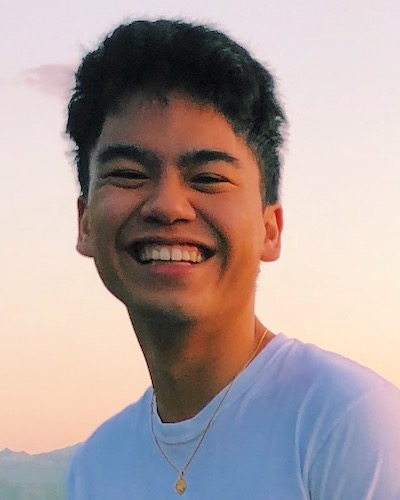
My Two Left Feet ⟩
September 13, 2022, by Bryan M.
Getting Involved What are OS/OT?
A common experience for burgeoning occupational therapists is the difficulty in explaining what OT is and why “occupations” are significant. Rather than giving you my “elevator pitch” definition, I thought I’d show you one of the ways I came to discover the superpower that is “occupation”.
Admittedly, I have two left feet. I am no dancer, and those closest to me can attest to that. Sure, I can find a rhythm, but you will never catch me impressing a crowd with my movement abilities. However, a key part of my undergraduate experiences, shaping me into the occupational therapy student I am today, was a dance performance that I took part in on USC’s largest stage in front of hundreds of people.
For context, I was a part of a student-run nonprofit organization in undergrad at USC called Troy Camp, which worked with elementary, middle, and high school students in the Greater Los Angeles Area, providing mentorship, leadership experiences, and academic support. Through this organization, I was able to put on a weekly creativity workshop for 3rd-5th graders at Vermont Elementary School. Modeling after a creativity-based course I took as a part of USC’s Occupational Science Minor, I developed a curriculum to provide an outlet for my students to express their creativity through mediums like filmmaking, dancing, engineering, crafting, and storytelling, among others.

One of my campers and me at the pool during our summer camp
The ending event for this program was a live performance of Zedd’s “The Middle” in front of an audience at USC’s Bovard Auditorium, being a guest to one of USC’s premiere dance groups. The troupe came into the classroom to teach the students and counselors the choreography to the song, and then they gave us the opportunity to showcase our abilities at their yearly showcase.
I remember the night well, but what stands out the most was my interactions with one of my students, Vladimir. A bright, more reserved 3rd grader was attached at my hip for the night. When I first met Vlad, he showed a lot of apprehension and discomfort when exploring the various creative media. He did not feel comfortable expressing his creativity, and he had a lot of trouble connecting with his peers. However, over the course of the 5 months, his confidence had grown immensely, juxtaposing how timid he was when we first met. His attitude changed every week, with phrases like “I don’t want to . . .” turning into “When are we going to start?” Despite my own uneasiness in performing (because, as a reminder, I am not a dancer), Vlad’s newfound eagerness was heartening. We joined the rest of our group on stage, as Zedd’s “The Middle” came on through the speakers . . .
This experience, especially my work with Vladimir, serves as a testament to occupation. Vladimir’s disposition exemplifies how occupational opportunities can impact individual lives and inspires me to make my own mark in the field of occupational therapy. Though my program with Vladimir only lasted a year, I saw how his opportunity to engage in new creative occupations drastically improved his demeanor. I want to be an occupational therapist to empower individuals, especially those in marginalized communities, to live rich, fulfilling, meaningful lives, dancing alongside them with my two left feet.
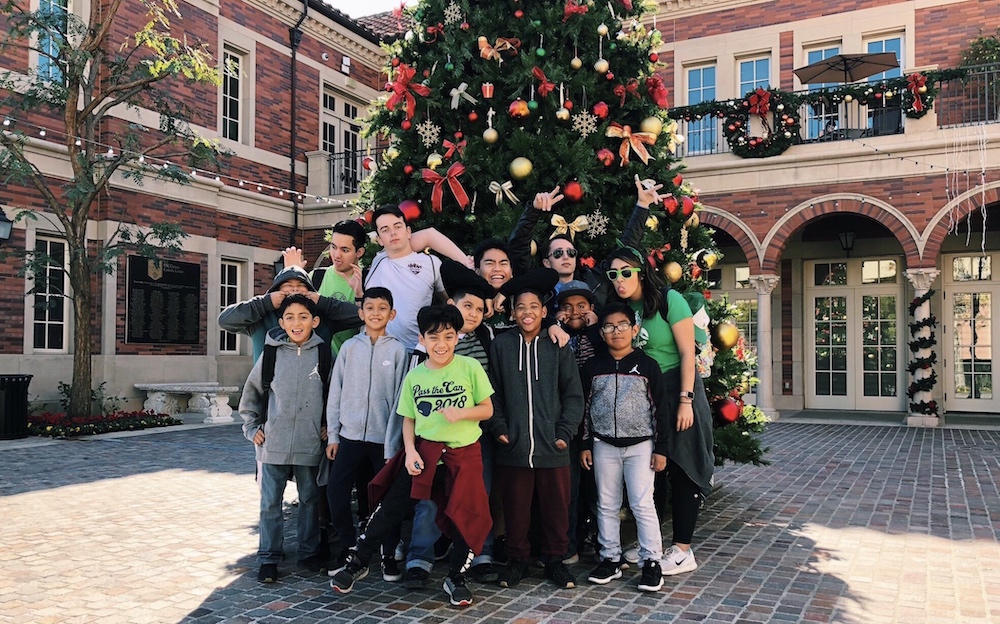
My Creativity Class in front of Bovard Auditorium after our dance performance
⋯
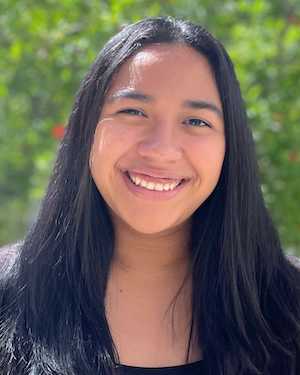
This Summer with the Community ⟩
August 12, 2022, by Andrea
Community Diversity Getting Involved
Throughout this summer I was able to volunteer in the Vivir con Diabetes and Vivir con Dolor programs. Alongside the guidance and leadership of current OT residents Daniela Flores-Madriaga and Elaina Rodriguez Garza, we were able to reach Spanish-speaking community members to help educate those with chronic conditions.
During my time as a volunteer, I helped lead discussions, exercise activities, and educate about habits and routines to participants. The education and culturally sensitive strategies through a lifestyle redesign lens provided by Daniela and Eliana helped support the journeys of participants with diabetes and chronic pain.
Daniela shares her experience with Vivir Con Diabetes as a rewarding experience that has shaped the way she interacts with chronic conditions. One of the biggest lessons she learned in facilitating these classes was to be attentive to the needs expressed by the participants. She found that “in order to make an impact in their lives, I had to provide strategies that were reasonable and applicable to fit their routines, habits, and roles.”
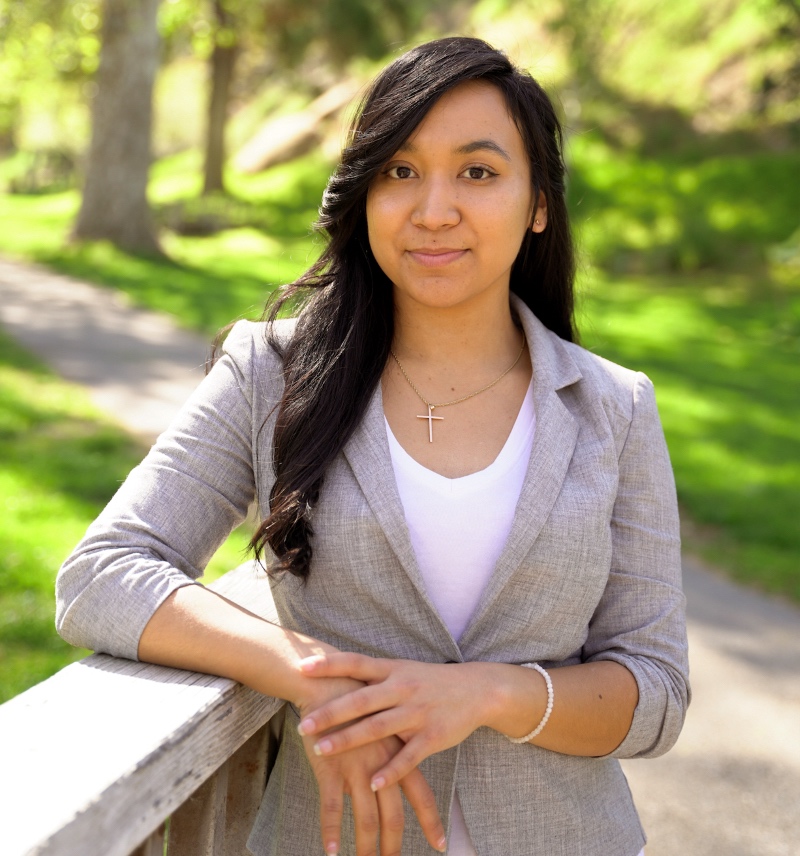
Elaina Rodriguez Garza
Since 2019, Elaina has volunteered to be a part of Vivir con Diabetes. Like myself and Daniela have expressed Eliana has found fulfillment in the program. “Not only is it an opportunity for me as a facilitator to connect with community members, but it is an opportunity to facilitate new connections between community members and create a space for them to bond over shared experiences living with diabetes and navigating problem-solving barriers around their health,” Elaina shares.
What is unique about the classes is the accessibility for community members to ask facilitators slightly more tailored questions they may not be able to ask in their primary care appointments. The tight community within these classes is something I found beneficial not only to myself as a volunteer but to participants as well. For example, during one of our classes on physical activity, I modeled examples of low-intensity exercises and lead a group discussion on participants’ current physical activity. In our discussion, a participant expressed their desire to walk more but is limited due to their arthritis. Another participant shared another program offered by the wellness center that can help their concern with exercising. Such interaction demonstrates the collaborative community fostered through the program.
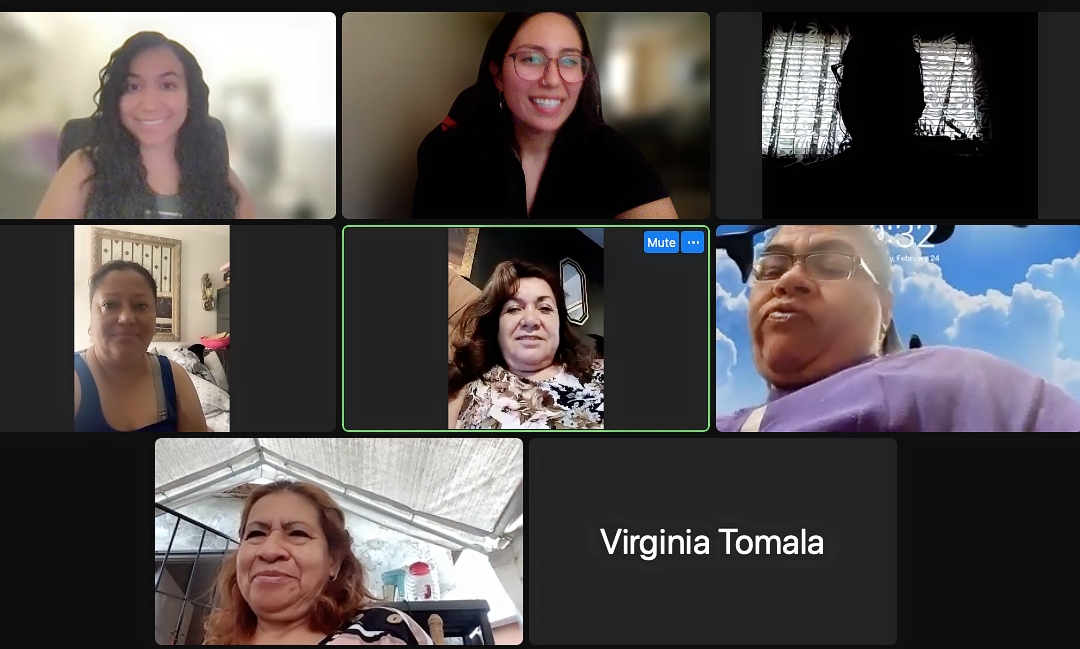
Being a part of this program this summer was a learning experience, one that allowed me to observe OT in practice and for us to tangibly serve our community.
⋯

So What Now? ⟩
July 29, 2022, by Andrea
Classes First-Gen Getting Involved What are OS/OT?
So you just discovered OT. Maybe your overly excited roommate shared with you the major or you heard about the amazing occupational science minor classes, like Creativity Workshop from a classmate. No matter how you discovered OT, the field piqued your interest.
Now you may ask yourself, how can I learn more about OT and/or get involved at USC as an undergraduate student? Well, here are some ways you can do just that!
Pre-OT Club
The Pre-OT Club is a great way to learn more about OT through presentations, networking opportunities and guidance from current OT faculty members. The club is open to all USC undergraduate students interested in OT. From collaborations with other health profession clubs on campus to providing advisement for applying to OT graduate school, the Pre-OT club explores ways to dwell deeper into the field of OT.
OS Minor
Whether you have extra units, are ambitious to pick up a minor or are committed to applying to OT graduate school, pursuing an OS minor may be the right choice for you. Minoring in OS prepares you for the career of OT as well as exploring its uniqueness and versatility. Classes like Doing Social Justice and Creating a Sustainable Lifestyle are some examples of such versatility and how anyone can find their path to OT. I never miss an opportunity to recommend an OS class to my friends looking for a fulling class. One of my favorites to recommend is OT 100: THRIVE: Foundations of Well-Being. I took OT 100 online as a freshman and was able to foster vulnerability with my small group as we explored what it meant to thrive in all aspects of life. It’s a great course to learn more about well-being from an OT lens!
Volunteering
Getting hands-on experience is a great way to further your understanding of OT and the daily tasks of a therapist. Because of the many settings OTs can work in, consider volunteering at various sites and/or with different populations/communities. Click here to find a site!
Networking
The “Trojan Family” doesn’t just describe the relationships you build with other USC students, but also the relationships between faculty and students. Consider conducting an informational interview with a faculty member. After a coffee chat or zoom call, speaking with a current OT professional can provide you with relevant information about working in OT, expand your knowledge of the unique pathways, and provide guidance to your journey in OT. One of the ways I was able to network with USC Chan alumn was through the Trojan Network. During my time in the first-generation mentorship program, I was able to connect with current OTs who shared with me their journey to OT and her advice. Alum, Dr. Joyce Yoo, shared with me the importance of getting to know my colleagues and peers “as they are peers as they too are doors of future opportunities.”
In short, your journey to OT doesn’t start at the graduate level! The opportunities here at USC allow you to pursue OT at any point in your undergraduate experience.
As an undergraduate student myself, a rising junior in the BS-OTD program, I love to talk to other students about my passion for OT and always pitch the idea of exploring OT for themselves. If you need any more convincing, let’s have a chat!
⋯

Learning and Applying ⟩
July 15, 2022, by Andrea
Diversity First-Gen Getting Involved What are OS/OT?
Coming to USC, specifically to USC Chan, my passion for OT grew as I became more immersed in my classes and the opportunities for learning more about the profession. One of the ways I was able to explore my desires as a professional was through the Summer Institute.
I attended the Summer Institute in the summer of 2021 in the hope of gaining a clear direction in my journey as an OT student and exploring the unique disciplines. Throughout the six weeks, we explored our goals academically and professionally, gained mentorship, and the ways in which we can reduce health disparities in minority populations.
The most impactful week for me was when we held a student panel. It was a space where current students provided honest insight into their journey into OT as it related to their identities — first-generation and/or POC. Hearing from each panelist about how they were introduced and came to love their professions was definitely a highlight. The diversity in their journeys was a reminder that everyone has their own set path.
Some aspects that I continue to utilize even after the program are the tips on how to seek mentorship and professional development. Seeking mentorship can be a daunting task, but I was able to understand that it can be a process. It’s not always that the first person you cold email will respond. Being a mentee in any program requires flexibility, following up, and good communication. I utilized these skills in my sophomore year in the USC First-Generation Mentorship Program with my own mentor which better prepared me as a mentee. Learning how outreach to OT professionals was a skill I gained confidence in.
As the current cohort for the Summer Institute of 2022 is in the midst of their program, I encourage you to invest in fruitful connections within your cohort and faculty. Each person in that zoom call has a passion for OT and the ways we can impact our communities. Through my experience in the Summer Institute, my passion for serving the Latinx community was solidified and my confidence in my own journey was strengthened. The growth and learning don’t stop at the end of the six weeks, instead, it only marks the beginning of your journey as a healthcare professional.
Fight On!
⋯
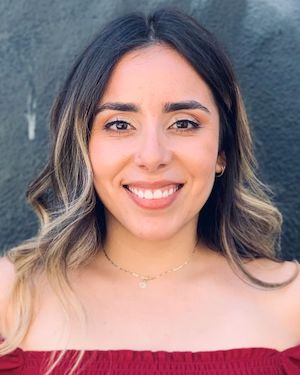
The USC U don’t C ⟩
April 21, 2022, by Silvia
Admissions Community Diversity First-Gen Getting Involved
No todo es color de rosa. Like my friend Rolly says, “There is a USC that you don’t see.”
Holistic admissions? I love it. I am all in for decreasing barriers and increasing access for students to enter spaces of higher education. Do you know the percentage of Latinx individuals in higher education? There is not many of us, but that is changing. We are changing it.
As the new director of admissions, Dr. Anvarizadeh and her team pushed for a holistic process that would view applicants as whole individuals—considering their core values, thoughts about equity, diversity, and inclusion, etc. — and not just as a set of test scores or GPAs. Let me tell you why this has been a game changer, but more importantly, why the work can not stop only with holistic admissions.
⋯
In 2018, I graduated from Cal Poly SLO with my first collegiate degree. The time that I had to rejoice in that feeling of being the first in my family to graduate college was short lived as my dad would be losing his job shortly after. I was quickly reminded of my role and my identity as a Mexican daughter, the eldest child in a family of eight. My educational and career goals were put on pause because as I was raised, in my Mexican culture, family comes before and is above everything. Naturally embracing that role, I texted my brothers to figure out how we were going to pull through, like we always do.
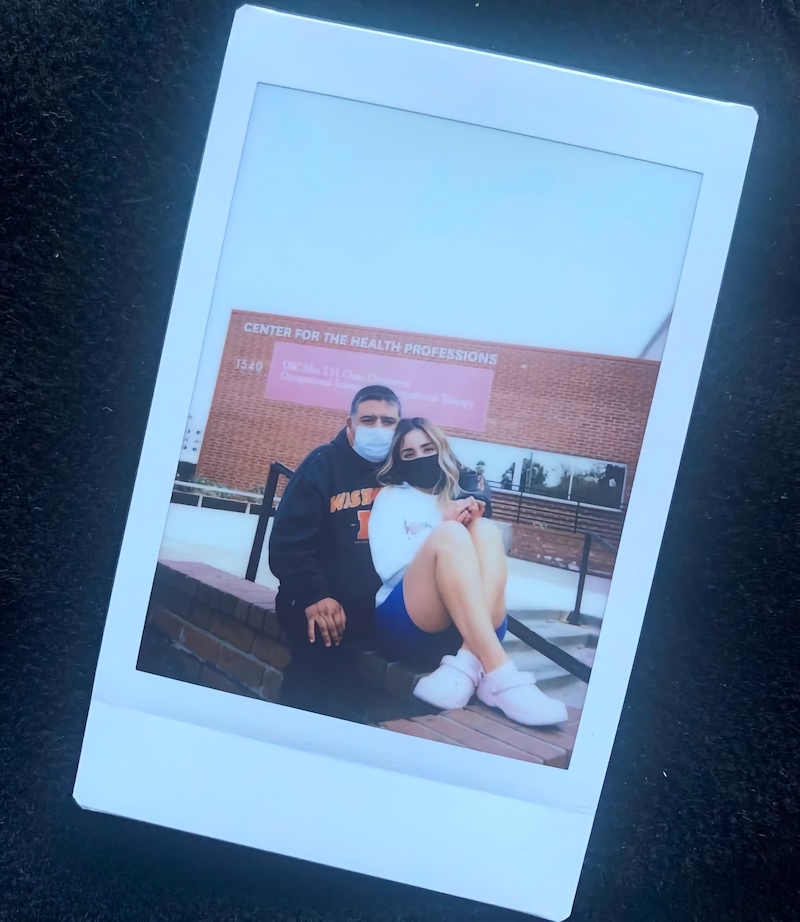
Mi papá y yo at CHP
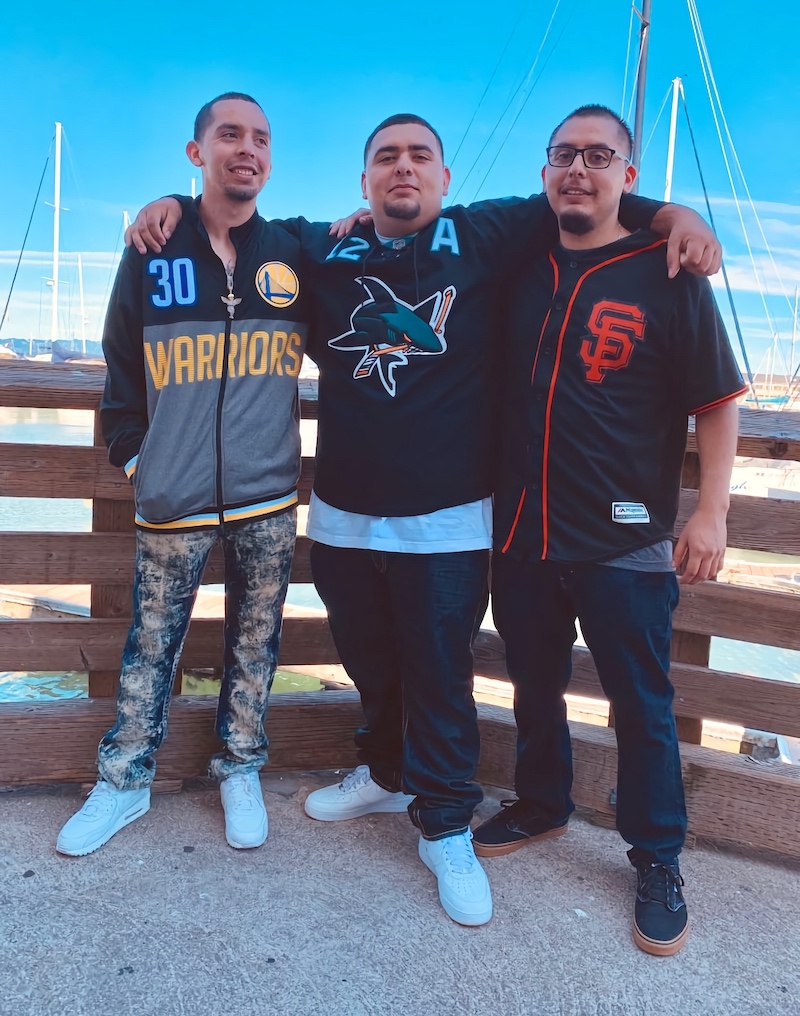
My 4Lifers, mis hermanos
For the next year or so, I worked Monday-Sunday and gave my dad more than half of my paycheck. When I began considering the possibility of furthering my education and applying to graduate school, I felt guilty. I felt selfish. How could I be thinking about myself and what I wanted when my dad was still not 100% back on his feet? It is ironic because even the decision of going back to school was based on helping my parents. I needed this degree to be able to get a job in my field of interest and so that I could earn more money to give back to my family. That is how collectivist cultures like mine work.
The thought of resuming my role and identity as a student was great, but with what money and what time? What money was I able to save for grad school? What money did I have to spare to take the GRE more than once or to spend on study materials, for that matter? What time did I have to sit for a 4-hour exam more than once? I didn’t. Talk about the barriers that USC Chan’s holistic admissions addressed for me. In my application video I stated the occupations that got me through the difficult time my family faced: work and prayer.
That is my story, but I write this blog to highlight the fact that there are stories behind the BIPOC students being admitted into the program that you do not see. Holistic admissions have opened the door for us to be able to step into higher spaces, but to quote my friend Miriam De La Torre, “don’t invite us into the room if there is not a seat at the table open for us.” You see the faces and numbers that represent diversity but are ignorant to the adversity attached to them. If the work is not to be performative, we cannot continue to casually disregard that the “E” in the new JEDI curriculum stands for equity vs. equality. You can’t allow us into the room to watch us stand. Students need to be supported beyond admission.
Se tenía que decir y se dijo.
All this to say that many of us BIPOC student and allies are here to keep the momentum going to make sure we continue to do the work past holistic admissions. Like Dr. Anvarizadeh said at COTAD’s “Springing into Action” virtual event, we cannot do this in silo — we have to lock arms to see it through. I hope y’all are ready for what is to come as we continue to collaborate, work together, and build community.
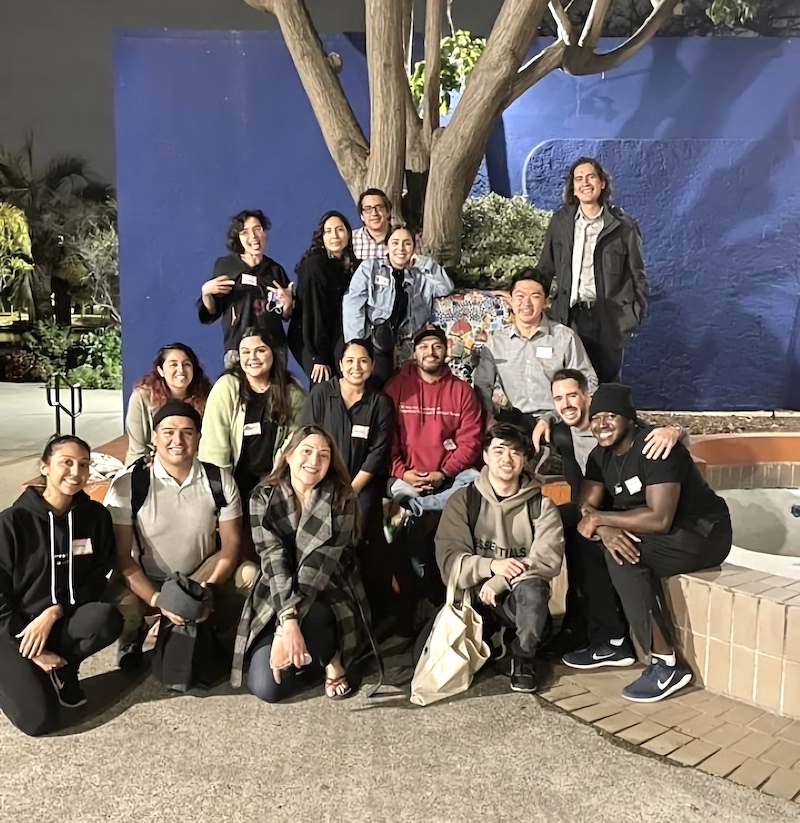
Showing up for each other: Students attend an event at Plaza de La Raza for which Dr. Diaz was a panelist
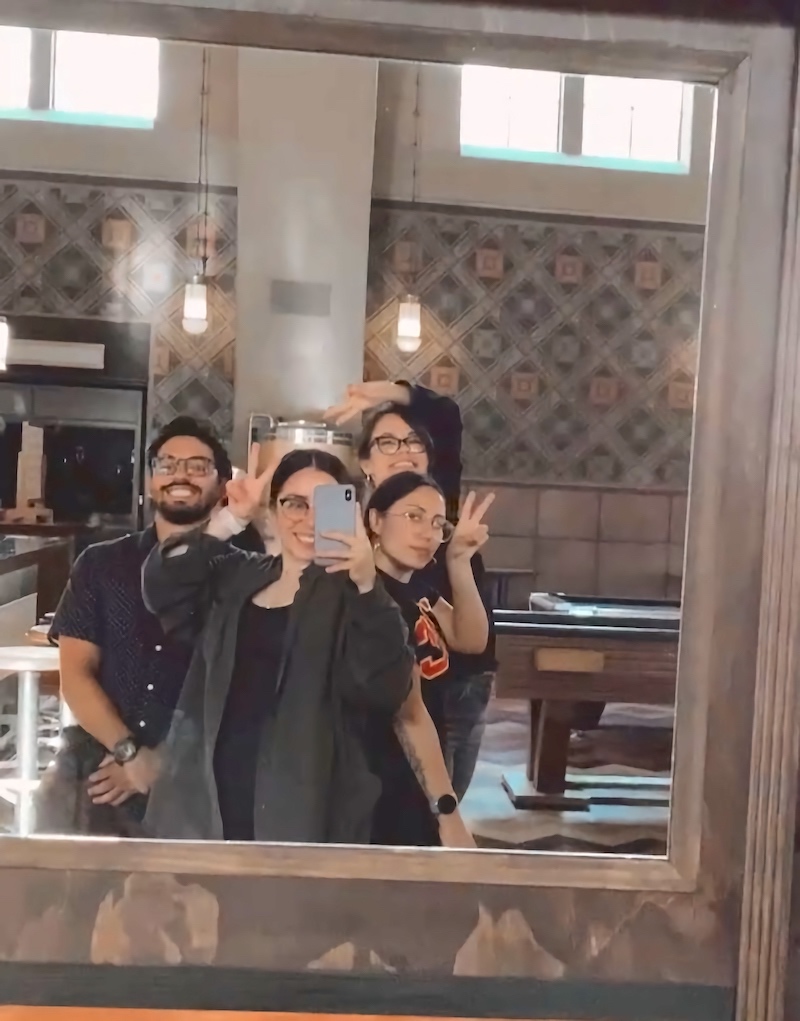
Mis amig@s y yo at one of our AHTO social events: Abraham Ramirez, Daniela Flores-Madriaga, Denisse Mendoza
⋯





